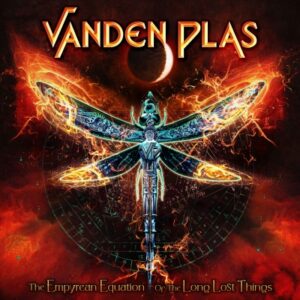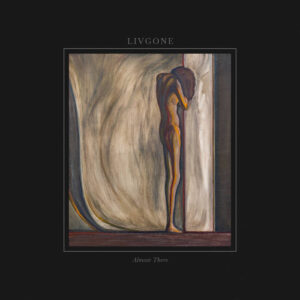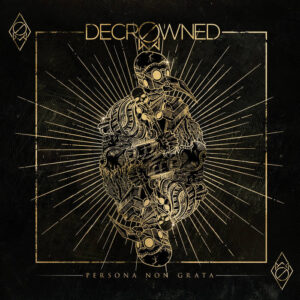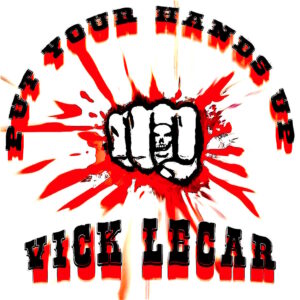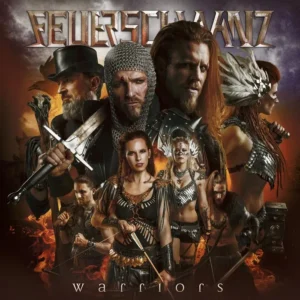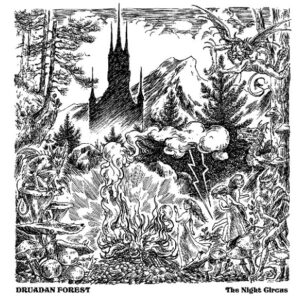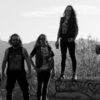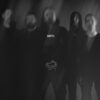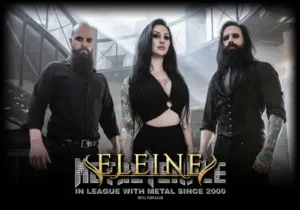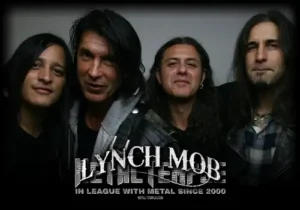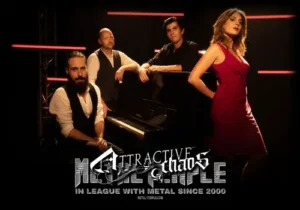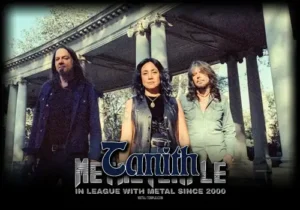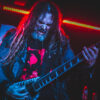Gregor Mackintosh
Paradise Lost
•
November 10, 2005
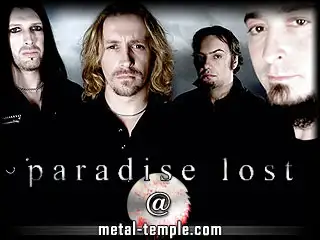
The writing and recording took approximately a year. The mixing dragged on for a while after that, due to BMG Records rescheduling. Working with Rhys and Greg [Reely], the engineer, again was very relaxed, because we all know each other so well and Rhys liked where we were taking the music.
I suppose it was a similar feeling between Symbol Of Life (2002, BMG) and PL X as it was with Icon (1994, Music For Nations) and Draconian Times (1995, Music For Nations), mainly a case of if it ain't broke, don't fix it.
Believe In Nothing wasn't a very enjoyable time for me. When we did Host, everyone was really excited about it, because it was so different. So when it didn't reach expectations sales-wise, I virtually became the sole scapegoat. So there was a lot of back-biting. I still stand behind Host, but BIN was one huge compromise, both within the band and with the label, which is a shame because a song like World Pretending deserves better.
(Laughs) Of course it was a mistake, but it's a mistake that no bands ever learn from. Before we signed to EMI, we used to say better a big fish in a small pond and then we went and followed suit. Majors tell you what you want to hear, but bail when the going gets tough.
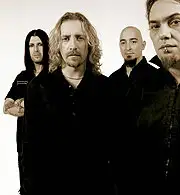
With this in mind, after the end of the EMI era you released Symbol Of Life, which is regarded by many as a magnificent return to form. How do you think PL X follows on from that and builds on its success?
I'm very proud of Symbol Of Life, it's a very textured album. I look at X as the coldest, heaviest parts of SOL taken to the extreme.
That's difficult to say, because with such a long and varied career, people may well have different opinions on what a PL record should be. We are quite hard on ourselves and I suppose every album just represents how we feel at any given time.
We just do what feels right. I got totally sick of the twin-guitar thing at one time and decided to do something different. Having had a break from that, it now feels very fresh to me and I am actually enjoying doing the lead and harmony lines again. Bottom line is, I have to enjoy what I do or there is no point.
It was very difficult. I was in constant pain and I wasn't supposed to do anything from February onward. On the tour, I basically laid down all day, just so I could give it my all on stage but it did take its toll and I had a second surgery 3 weeks ago. So far, things are much better.
We have been touring in various parts of Eastern Europe for most of our career and we are very lucky to have such a loyal fanbase. Some countries are easier to arrange shows in than others, but ultimately if we have fans somewhere, we want to play there. Fans in a lot of these countries have tremendous patience. I think there is great potential in these countries. A few more decent promoters wouldn't go amiss, though...
It's not the fans' fault. I think it's more of a media thing. There are a handful of press people in the UK, deciding what everybody should and shouldn't like. At least in the USA, there are numerous and very varied college radio stations which are a good source for reasonably unbiased views. In most of the rest of the world, there seems to be a decent enough magazine and press network that aren't all controlled by the same people and have enough of a sales base to make a difference.
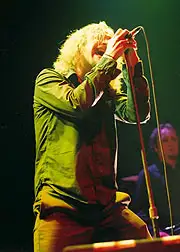
In recent years, the Gothic Metal genre you spawned has reached unprecedented heights of popularity. Are you surprised at this and what do you think of the current wave of Gothic Metal bands?
I am very surprised at how big it has become. They have rebadged it though, of course. It's like breakfast cereal. Package it nice enough and anyone will buy it. The ones that have enormous popularity, like Evanescence, are an even newer breed. They have probably never heard of us, yet they are influenced by bands like Lacuna Coil, who were influenced by...us! But hey, if Nick [Holmes, vocalist] was as photogenic as Amy Lee [Evanescence vocalist], we would probably be multi platinum by now.
I can't wait. I thoroughly enjoyed the tour with Opeth and we have some great fans over there. From what I hear, we are already looking at a couple of tours of the US early next year.
In one sense I agree. I think we should make a noticeable shift in sound on future material. But having said that, you can't keep a good song down and if the material is strong enough, then you shouldn't have to worry about boundaries.
More results...
